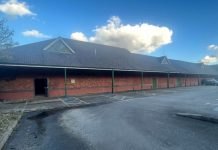Private investors into commercial real estate may be forced to look beyond the world’s leading cities for better value, according to new data from Knight Frank’s 2018 Global Cities report.
Knight Frank has analysed how much prime office space can be acquired for $100 million as a guide for private buyers, who accounted for 25% of commercial real estate transactions in 2016 globally.
Hong Kong is by some margin the world’s most expensive city, where buyers could expect to acquire just 11,698 sq ft – less than a single floor in The Shard – for US£100 million.
Hong Kong is followed by Tokyo, where $100 million would buy 31,282 sq ft of prime office space. The top five of the ranking is completed by three European cities, with investors able to acquire 36,662 sq ft in Paris, 43,754 sq ft in Zurich and 43,899 sq ft in London.
Appetite for commercial real estate in many European cities has driven up values, meaning private investors can now expect to acquire far less prime office space for their money. In Berlin, $100 million would currently buy 85,170 sq ft, which represents a 42% decrease year on year, while buyers in Amsterdam can acquire 40 per cent less office space this year (96,762 sq ft) than in 2016.
With the exception of New York, which is ranked seventh on the list, US cities appear to offer far better value for real estate buyers. In LA investors would acquire 131,857 sq ft of prime office space for $100 million, closely followed by Boston (134,977 sq ft) and Washington DC (135,602 sq ft). In Seattle investors could buy 157,381 sq ft – over 100,000 sq ft more office space than they could acquire New York – whilst Austin and Chicago are even more reasonable offering 172,158 sq ft and 204,604 sq ft respectively.
According to Knight Frank’s analysis, Bengaluru offers the best value for investors. There, $100 million would buy over 500,000 sq ft – equivalent to the size of The Gherkin in The City of London.
Anthony Duggan, Head of Capital Markets Research, Knight Frank, commented: “Our analysis demonstrates that private investors remain focused on the ‘safe haven’ cities, where they get less bricks and mortar for their money but more long-term security. Given the shift in values we have recorded, this strategy has also been rewarded with some strong performances.
“However, even some of the world’s wealthiest individuals will find pricing in Hong Kong, Tokyo and London less attractive moving forward. As a result, we will see astute buyers selectively moving up the risk curve to less well established, or emerging business centres where the property market dynamics are improving, the yields are higher and, ultimately they can get more for their money.”




















